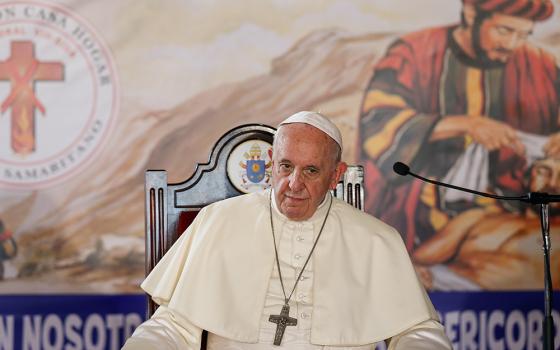
(Unsplash/Carl Hunley Jr.)
The feeling of hopelessness is familiar. All of us have probably been through times when we have felt hopeless. It could have been at the news of a terminal illness of a loved one, or at a relationship that's on the verge of falling apart, or during a stressful job, and so forth. In those trying moments what kept us going?
It was probably contra spem spero, which translates as "against all hope, I hope." The phrase became popular after a poem with the same title was penned by one of Ukraine's most revered poets, Lesya Ukraїnka, in 1890. Lesya battled an illness that weakened and exhausted her, both physically and mentally. In this poem she articulated her unwillingness to be conquered by her illness. It was hope alone that sustained and carried her through life to not give up and give in to the disease.
Hope is not a simple fairy tale wish. A wish is something that someone longs to have, but hope is the expression of a possibility. It is a "looking forward to." Jürgen Moltman, a German theologian, expressed hope as "forward looking and forward moving, thus revolutionizing and transforming the present." Hope expresses confidence of a high possibility of an event occurring or not occurring, whatever the case might be.
I noticed this forward-looking attitude in one prisoner under trial in a prison in India, during one of my visits there as a volunteer. She had been accused by her in-laws of murdering her husband, but she shared that her husband had committed suicide, unable to bear the stress resulting from financial debts. She couldn't afford to pay the legal fees for her release and has been incarcerated for the past eight years, despite the efforts of her aging parents and siblings.
Though imprisoned and unable to help herself, there were no words of despair in her conversation. As she narrated her story, I recalled the words of Karl Barth, a famous theologian, who wrote, "All that is not hope is wooden, dead, hampering as ponderous and awkward as the word reality. There then is no freedom, but only imprisonment." How fitting this quote was to this imprisoned woman. I felt life in her. She seemed hopeful — imprisoned, yet free. Contra spem spero!
Advertisement
Her proactive attitude made me reflect on two aspects of hope: believing and progressing. Hope-filled people whose hope has its roots in faith in the divine have Believing Hope. Their faith in the divine leads them to have faith in themselves and in the process of growth itself. Hope and faith are inseparable companions, and those who believe can anticipate that truth will be revealed. Faith is the foundation on which hope rests, nourishes and sustains.
Hope affects faith, too. The unremitting, renewing and restoring hope invigorates faith again and again. Hope has the power to overstep the closed walls of suffering, guilt and pain. This Believing Hope helps one to cross and transcend the bounds of a prison to progress in hope.
For a prisoner under trial, to move beyond her past and beyond the present in order to discover her future means a lot. It requires hope that progresses and matures over time. Hope, for them, is not built upon a wish-fulfillment, but embedded in the process of continuing anticipation of being proven innocent, of being released, and being able to live the peaceful life of an ordinary person.
They are people who move around like a lamp with a flickering flame but would not let the outside forces blow it away. They make efforts to progress toward the "not-yet" — the radically new and transforming future. It is the daily progress in hope that provides them the inexhaustible inner resources to seek justice. Justice and hope are indeed partners on life's journey, despite being surrounded by overwhelming injustice. It is through hope that we know there are people who still continue to fight for justice.
Though injustices prevail, we still hope. We hope that violence, poverty and other social evils will diminish; we hope to have humane government policies; we hope that people will be accorded protection in this nation; we hope that justice will reach the poor and the voiceless. We dare to hope. This, of course, is a creative battle, a creative battle of sharing hope with those whose lives seem devoid of it! For triumph in the life of one individual can impact the lives of many. Hope fosters hope.
We need this hope in all our ministries today, and our hope does not arise because of the problems around, but because of our trust in the Divine Master. And we hope that contra spem spero vibrates in every human heart.








